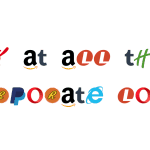Even if English is your first language Australian English can be difficult to understand. Australians have a lot of slang and are known to abbreviate everything. While many Australian slang words are also used in British English there are also hundreds of works unique to Australian English. Here is a guide to learning and understanding Australian English a bit better.
What is Australian English?
English is the official language of Australia, but Australians still have their own version of the English language. Australian English has many abbreviations and local slang.
While Australian English follows the same spelling as UK English There are many words that are different in Australia to what they are in The UK, The U.S and other English-speaking countries. This guide will teach you everything you need to know about Australian English so that you can start speaking the dialect like a pro.
Examples Of Words That Are Different in Australia Compared To Other English Speaking Countries.
These are just a few examples. There are many words that are different but here are a few words that are different.
Thongs: Thongs have a very different meaning in Australia to what they have in The U.S. In Australia “flip flops” are called thongs. But don’t say thong over in America. They will think you’re referring to a pair of undies (underwear).
Capsicum: In The US Capsicums are called bell peppers. So if you’re looking for a bell pepper in Australia make sure you ask for a capsicum and not a pepper. If you ask for a pepper an Australian will think you’re talking about a chilli pepper or black pepper which are very different.
Footpath: A footpath in Australia is the same as a sidewalk in America.
Lollies: Australians refer to all candy as lollies. The word candy is a very American word and you won’t find many Australians using it.
Mobile Phone: Australians don’t say Cell Phone, we will either say phone or mobile phone.
Nappies: Nappies are the Aussie word for diapers. So if you’re shopping online or in-store for your baby make sure you search for nappies and not diapers.
Hot Chips: Australians like to keep everything simple. French fries are called chips. Packets of chips are also called chips so this might cause some confusion. Basically, we call every form potato snack chips.
Some Examples of Australian Slang Terms
As a foreigner, you aren’t expected to use Aussie Slang but it will help if you at least understand it.
Chook‘
Australians do use the word chicken but the slang word for chicken is a chook. You might hear people say things like “Should I pick up a chook from the shop?”
Bogan
A Bogan is basically used to describe someone who is unsophisticated. These people would be referred to as Rednecks in America and in The UK they’d be known as chavs.
Servo
A servo is an abbreviation for the word service station. A service station is the same as a gas station in The U.S.
Arvo
Arvo means afternoon. Australians do say afternoon but arvo is the common slang term for the afternoon.
Bikkie
A slang term for a biscuit or cookie. Just remember that Australians don’t say cookie. They almost always refer to any cookie as a biscuit or a bikkie.
Useful tips to learn Australian English
Here are 10 ways to learn Australian English easily:
- Watch Australian movies and TV shows to get a feel for the accent and slang.
- Listen to Australian music – you’ll hear a variety of Australian phrases in different songs.
- Read articles and blogs written by Australians – this will give you a better understanding of their culture and how they speak.
- Speak to a local. That’s usually the best way to learn.
- Practice your pronunciation with an online quiz or audio lesson
- Join an Australian English discussion forum or social media group.
- Use Australian English learning apps to learn from basic to advanced. You can use the AmazingTalker mobile app to learn Australian English. Consider using one of their Online English Tutors and speak to a native Australian.
- Ensure that you use UK English spelling and not American spelling. If you don’t know the British spelling you can use a translator or tool like Grammarly.
Conclusion
Learning Australian English doesn’t have to be a daunting task especially if you already speak English. By following the tips above, you’ll be on your way to mastering the Aussie dialect in no time!





